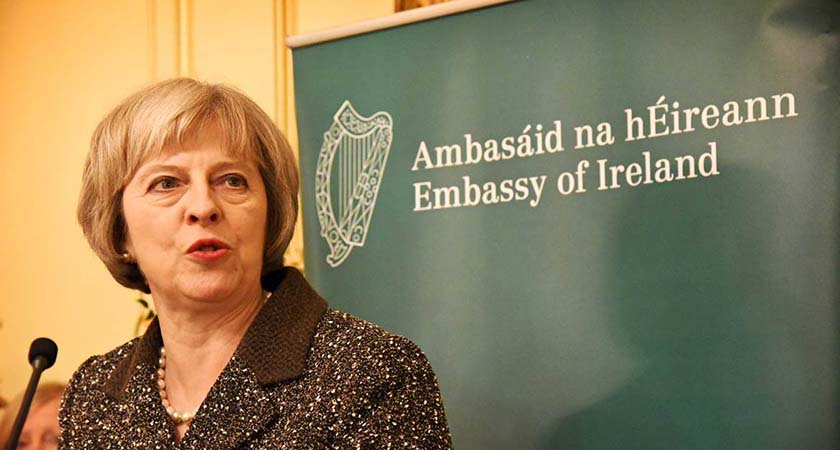THE Irish Government is reassuring citizens who live and work in the UK that their rights will be protected after Brexit, but no such assurance is coming from the Tory party.
The issue was raised after the UK's Foreign Secretary Philip Hammond has said it would be "absurd" to promise all EU nationals, including the Irish, permission to remain in the UK indefinitely, ahead of any formal Brexit negotiations with the European Union.
Mr Hammond's statement follows comments by Home Secretary and Conservative Party leadership contender Theresa May, who over the weekend said she wanted to "guarantee the position" for EU citizens living in the UK, but that guarantee came with a proviso.
Speaking on ITV, May said:
The position at the moment is as it has been, there's no change at the moment, but of course we have to factor that into negotiations...As part of the negotiation we will need to look at this question of people who are here in the UK from the EU.”
If Mrs May is elected as Britain's next Prime Minister, she is expected to use the maintenance of current rights enjoyed by EU citizens in the UK as a bargaining tool to guarantee similar rights for British citizens living in Ireland and the rest of the EU.
Of the current 28 EU member states, the UK has the largest population of its citizens living abroad in other EU countries such as Germany, France or Spain.
In response, First Minister of Scotland Nicola Sturgeon said May's comments were "disgraceful" and "disgusting."
.@NicolaSturgeon calls @TheresaMay2016's position on EU migrants "disgraceful" and "disgusting". pic.twitter.com/0cNL0nCf9U
— Matthew Moore (@mattmoorek) July 5, 2016
The Irish Post has learned that informal talks between the Foreign Secretary, Philip Hammond and his Irish counterpart Charlie Flanagan, have already taken place, with Mr Flanagan emphasising the "special relationship" between both countries.
Minister Flanagan has highlighted the significance of the Common Travel Area between Britain and Ireland which has been providing reciprocal immigration arrangements since before common membership of the EU.
Irish citizens currently enjoy a unique position among fellow EU citizens under the Ireland Act of 1949, which gives "non-foreign" status to Irish citizens.
However, since the historic Brexit vote to leave the EU, the UK Government now must clarify its position, according to the Immigration Law Practitioners' Association (ILPA).
The Irish in Britain are currently treated as immediately ‘settled’ from the date they take up ordinary residence.
This permits Irish citizens to apply for UK passports after five years’ continuous residence and enables their children born here to acquire British citizenship.
This is a more generous regime than the arrangements applicable to EEA Swiss nationals and other EU members. For example French or Spanish citizens and their family members typically require five years’ residence Britain in order to become ‘settled’, and a further year’s residence to apply for citizenship.
The only piece of legislation currently in British law that sets Irish citizens apart as 'non-foreigners' is the 1949 Ireland Act.
Experts from the ILPA believe that any negotiations on a future settlement for Irish citizens living in the UK could also spell the end of some voting rights currently enjoyed by the Irish in Britain, such as the right to vote in referenda.


